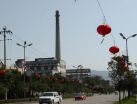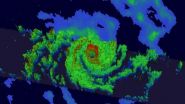(Press-News.org) Support in developed countries for natural history—the study of the fundamental nature of organisms and how and where they live and interact with their environment—appears to be in steep decline. Yet natural history provides essential knowledge for fields as varied as human health, food security, conservation, land management, and recreation. In the April issue of BioScience, a group of scientists from institutions across North America details examples supporting their conviction that a revitalization of the practice of natural history will provide important benefits for science and society.
The 17-member group of authors, convened by Joshua J. Tewksbury of the University of Washington and the World Wide Fund for Nature's International office, notes that 75 percent of emerging infectious diseases of humans, including avian influenza, Lyme disease, cholera, and rabies, are linked to other animals at some point in their life cycle. Control strategies rely on knowledge of these hosts' natural history.
Sustainable agricultural practices, such as companion planting, crop rotation, and pest control, likewise rely on knowledge of natural history, much of which was, however, discarded with the Green Revolution. Effective fisheries management relies on natural history—disasters such as the collapse of the Bering Sea walleye pollock fishery might have been avoided had it been used sooner. Rigorous forest fire suppression in the western United States during much of the twentieth century was another costly mistake that might have ended sooner if natural history knowledge had been used earlier. And recreational hunting and fishing have often benefitted when interest groups applied knowledge of natural history and suffered when it was ignored.
Despite this, natural history collections are not expanding, and the number of active herbaria has declined since 1990 in Europe and North America. The majority of US schools now have no natural history requirements for a biology degree, a trend that has coincided with the rise of molecular, experimental, theoretical, and other forms of biology. These types of biology may be less expensive or be more likely to attract large grants and public recognition. The stagnation could also reflect more general public disengagement with nature in developed countries.
Although biological modeling has become more sophisticated, Tewksbury and his coauthors note that models must be built on field observations to usefully represent the real world. The important influence of microbes on human health and plants is a key new frontier in natural history research, the authors believe. And they see hope for the discipline, both within and outside of traditional natural history collections, in the rise of Internet- and smart phone-based technologies that allow the growth of broad partnerships, including citizen-science initiatives. Such linkages are starting to develop, but will need established professionals to self-identify as natural historians to provide the leadership needed for natural history to reclaim its necessary role, the authors assert.
INFORMATION:
BioScience, published monthly by Oxford Journals, is the journal of the American Institute of Biological Sciences (AIBS). BioScience is a forum for integrating the life sciences that publishes commentary and peer-reviewed articles. The journal has been published since 1964. AIBS is a meta-level organization for professional scientific societies and organizations that are involved with biology. It represents nearly 160 member societies and organizations. Follow BioScience on Twitter @BioScienceAIBS.
Oxford Journals is a division of Oxford University Press. Oxford Journals publishes well over 300 academic and research journals covering a broad range of subject areas, two-thirds of which are published in collaboration with learned societies and other international organizations. The division has been publishing journals for more than a century, and as part of the world's oldest and largest university press, has more than 500 years of publishing expertise behind it. Follow Oxford Journals on Twitter @OxfordJournals.
Natural history must reclaim its place
Support for the subject has declined, but its study can avoid costly mistakes for society
2014-03-26
ELSE PRESS RELEASES FROM THIS DATE:
Coal plant closure in China led to improvements in children's health
2014-03-26
Decreased exposure to air pollution in utero is linked with improved childhood developmental scores and higher levels of brain-derived neurotrophic factor (BDNF), a key protein for brain development, according to a study looking at the closure of a coal-burning power plant in China led by researchers at the Columbia Center for Children's Environmental Health at the Mailman School of Public Health.
The study is the first to assess BDNF and cognitive development with respect to prenatal exposure to polycyclic aromatic hydrocarbons (PAH), a component of air pollution commonly ...
Resistance is not futile
2014-03-26
Researchers with the U.S. Department of Energy (DOE)'s Joint BioEnergy Institute (JBEI), a multi-institutional partnership led by Berkeley Lab, have identified the genetic origins of a microbial resistance to ionic liquids and successfully introduced this resistance into a strain of E. coli bacteria for the production of advanced biofuels. The ionic liquid resistance is based on a pair of genes discovered in a bacterium native to a tropical rainforest in Puerto Rico.
"We identified two genes in Enterobacter lignolyticus, a soil bacterium that is tolerant to imidazolium-based ...
NASA catches Gillian as a super-cyclone before quickly dissipating
2014-03-26
VIDEO:
On March 23 when the TRMM satellite passed over Gillian, it was at hurricane-force. TRMM revealed intense storms in a well-defined eye wall producing rain at a rate of over...
Click here for more information.
Tropical Cyclone Gillian was near peak intensity when the Tropical Rainfall Measuring Mission or TRMM satellite passed overhead and saw towering thunderstorms and very heavy rainfall in the storm on March 23. By March 26, Gillian had weakened to a tropical storm and ...
Rice U. study: Don't shop for travel at work
2014-03-26
HOUSTON – (March 26, 2014) –It is probably not a good idea to shop for leisure travel from the office during business hours, according to a new study from Rice University and Iowa State University.
Using data from a major online hotel reservation site, the study examined the quality of the hotel that consumers chose for their vacations and subsequently how satisfied they were with their stay. They found that consumers who traveled farther and made reservations during business hours were more likely to select higher quality hotels but were less satisfied after their stay. ...
Dark energy hides behind phantom fields
2014-03-26
Quintessence and phantom fields, two hypotheses formulated using data from satellites, such as Planck and WMAP, are among the many theories that try to explain the nature of dark energy. Now researchers from Barcelona and Athens suggest that both possibilities are only a mirage in the observations and it is the quantum vacuum which could be behind this energy that moves our universe.
Cosmologists believe that some three quarters of the universe are made up of a mysterious dark energy which would explain its accelerated expansion. The truth is that they do not know what ...
Albert Einstein College of Medicine researchers present at AACR Annual Meeting symposia
2014-03-26
March 26, 2014 – (BRONX, NY) – From uncovering the role nerve cells play in metastasis to identifying new cancer-causing genes, researchers at Albert Einstein College of Medicine of Yeshiva University made notable advances in the understanding and potential treatment of cancer during the past year.
Several Einstein faculty members and students will present their recent research at the American Association for Cancer Research (AACR) Annual Meeting, taking place in San Diego April 5-9, 2014. Among the presentations are those during major and mini symposia:
Gene Regulation ...
Gout isn't always easy to prove: CT scans help catch cases traditional test misses
2014-03-26
Rochester, Minn. — Gout is on the rise among U.S. men and women, and this piercingly painful and most common form of inflammatory arthritis is turning out to be more complicated than had been thought. The standard way to check for gout is by drawing fluid or tissue from an affected joint and looking for uric acid crystals, a test known as a needle aspirate. That usually works, but not always: In a new Mayo Clinic study, X-rays known as dual-energy CT scans found gout in one-third of patients whose aspirates tested negative for the disease. The CT scans allowed rheumatologists ...
Preoperative PET cuts unnecessary lung surgeries in half
2014-03-26
Reston, Va. (March 21, 2012) – New quantitative data suggests that 30 percent of the surgeries performed for non-small cell lung cancer patients in a community-wide clinical study were deemed unnecessary. Additionally, positron emission tomography (PET) was found to reduce unnecessary surgeries by 50 percent, according to research published in the March issue of the Journal of Nuclear Medicine.
PET imaging prior to surgery helps stage a patient's disease by providing functional images of tumors throughout the body, especially areas where cancer has spread, otherwise known ...
Health concerns swirl around electronic cigarettes
2014-03-26
With sales of electronic cigarettes, or "e-cigarettes," on the rise and expected to hit $1.5 billion this year, concerns over potential health risks of using the trendy devices are also gaining momentum and political clout. An article in Chemical & Engineering News (C&EN), the weekly magazine of the American Chemical Society, delves into what scientists and regulators are doing about e-cigarettes, which are now being cleverly marketed under more appealing names such as hookah pens and vape pipes.
The battery-powered devices deliver an inhalable vapor, with or without ...
An answer to the perennial question: Is it safe to pee in the pool?
2014-03-26
Sanitary-minded pool-goers who preach "no peeing in the pool," despite ordinary and Olympic swimmers admitting to the practice, now have scientific evidence to back up their concern. Researchers are reporting that when mixed, urine and chlorine can form substances that can cause potential health problems. Their study appears in ACS' journal Environmental Science & Technology.
Jing Li, Ernest Blatchley, III, and colleagues note that adding chlorine to pool water is the most common way to kill disease-causing microbes and prevent swimmers from getting sick. But as people ...
LAST 30 PRESS RELEASES:
$3 million NIH grant funds national study of Medicare Advantage’s benefit expansion into social supports
Amplified Sciences achieves CAP accreditation for cutting-edge diagnostic lab
Fred Hutch announces 12 recipients of the annual Harold M. Weintraub Graduate Student Award
Native forest litter helps rebuild soil life in post-mining landscapes
Mountain soils in arid regions may emit more greenhouse gas as climate shifts, new study finds
Pairing biochar with other soil amendments could unlock stronger gains in soil health
Why do we get a skip in our step when we’re happy? Thank dopamine
UC Irvine scientists uncover cellular mechanism behind muscle repair
Platform to map living brain noninvasively takes next big step
Stress-testing the Cascadia Subduction Zone reveals variability that could impact how earthquakes spread
We may be underestimating the true carbon cost of northern wildfires
Blood test predicts which bladder cancer patients may safely skip surgery
Kennesaw State's Vijay Anand honored as National Academy of Inventors Senior Member
Recovery from whaling reveals the role of age in Humpback reproduction
Can the canny tick help prevent disease like MS and cancer?
Newcomer children show lower rates of emergency department use for non‑urgent conditions, study finds
Cognitive and neuropsychiatric function in former American football players
From trash to climate tech: rubber gloves find new life as carbon capturers materials
A step towards needed treatments for hantaviruses in new molecular map
Boys are more motivated, while girls are more compassionate?
Study identifies opposing roles for IL6 and IL6R in long-term mortality
AI accurately spots medical disorder from privacy-conscious hand images
Transient Pauli blocking for broadband ultrafast optical switching
Political polarization can spur CO2 emissions, stymie climate action
Researchers develop new strategy for improving inverted perovskite solar cells
Yes! The role of YAP and CTGF as potential therapeutic targets for preventing severe liver disease
Pancreatic cancer may begin hiding from the immune system earlier than we thought
Robotic wing inspired by nature delivers leap in underwater stability
A clinical reveals that aniridia causes a progressive loss of corneal sensitivity
Fossil amber reveals the secret lives of Cretaceous ants
[Press-News.org] Natural history must reclaim its placeSupport for the subject has declined, but its study can avoid costly mistakes for society



